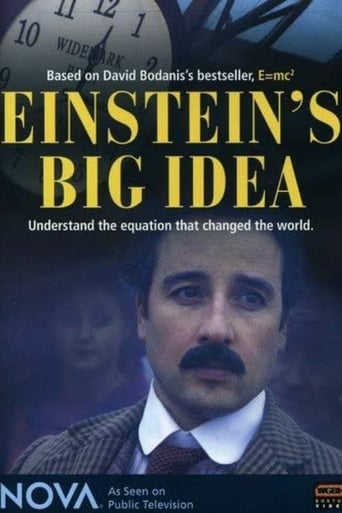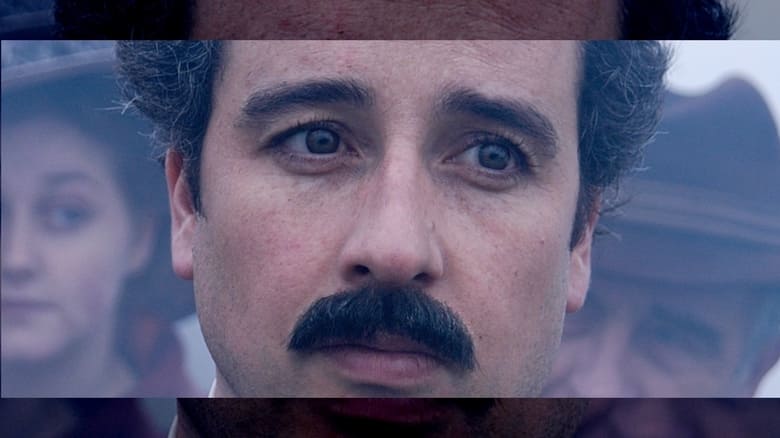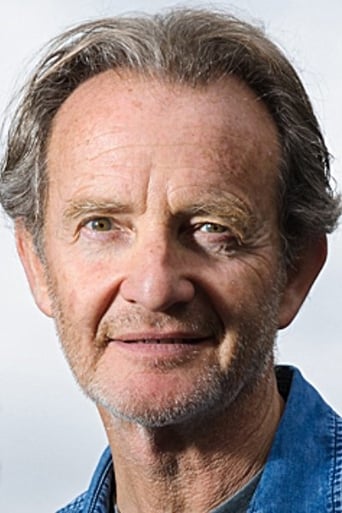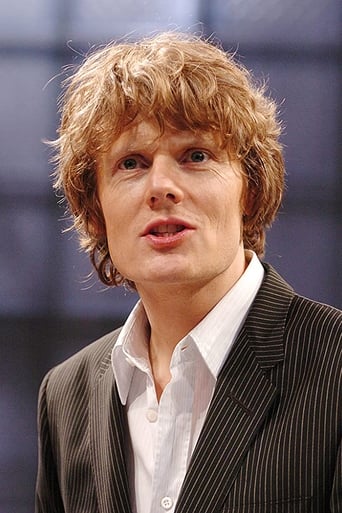

Einstein's Big Idea (2005)
Over 100 years ago, Albert Einstein grappled with the implications of his revolutionary special theory of relativity and came to a startling conclusion: mass and energy are one, related by the formula E = mc2. In "Einstein's Big Idea," NOVA dramatizes the remarkable story behind this equation. E = mc2 was just one of several extraordinary breakthroughs that Einstein made in 1905, including the completion of his special theory of relativity, his identification of proof that atoms exist, and his explanation of the nature of light, which would win him the Nobel Prize in Physics. Among Einstein's ideas, E = mc2 is by far the most famous. Yet how many people know what it really means? In a thought-provoking and engrossing docudrama, NOVA illuminates this deceptively simple formula by unraveling the story of how it came to be.
Watch Trailer
Cast
Reviews
Touches You
Instead, you get a movie that's enjoyable enough, but leaves you feeling like it could have been much, much more.
if their story seems completely bonkers, almost like a feverish work of fiction, you ain't heard nothing yet.
The movie's neither hopeful in contrived ways, nor hopeless in different contrived ways. Somehow it manages to be wonderful
I found this to be the most informative and delightful documentary I have seen in years. It shows how man knew of lightning, discovered the nature of electricity. How magnetism had been known for centuries and then that the two separate forces were brought together as one through brilliant experiments.Later light is found to be of the same properties of electricity and magnetism. Other, more elemental discoveries, would prove to be instrumental to help Einstein bring all of this together to figure out the mechanics of how the sub-molecular forces which allow everything in existence to thrive.Without one piece of this puzzle, people would have never have been able to realize how things work.This is the first report as to how to we came to understand the Universe and utilize its properties.
E=mc² is a scientific documentary about the understanding of energy of objects, and the history of this purview among its experts. This documentary is best for personal view, since there is no personification in its stories told. It could be a good choice for movie makers of sci-fi seeking for inspiration.After Benjamin Franklin's discovery of static electricity, the whole European science communities has begun working on the equations of force and mechanics. The plot grounds on Einstein's understanding of universe and how he differs from any scientist in the world. His courage of discovering the unknown and analyzing the inconceivable unites the Energy and the Mass, that no one could ever think of it. Einstein inspires from Michael Faraday, the founder of Electromagnetism and from James Clark Maxwell, the founder of the Celeritas(the speed of the light).The plot makes the huge mistake with not mentioning Thomas Edison for the development of the storage of the electricity and the static light. However on the book the writer David Bodanis talks about Voltaire and Edison upon the same issue. Again without mentioning the Einstein's development of Quantum Mechanics, the plot takes us to the invention of Nuclear Fission by unlocking the Uranium atom, and thus to the Manhattan Project and the World War-II.I found the storyline in such a mess, while trying to reveal Einstein's way of inspiration. It denies itself for the reason on the Light's traveling motion in space that is the square of its speed developed in numbers by a French academic 50 years before Einstein's developing the idea of taking the square measurement of light in order to find its motion in space. How could you develop a scientific thesis if its already accepted as a law 50 years before your thesis? As I know, no one else has ever thought of the light using it in a mathematical equation before Einstein. Anyway omitting this fallacy, I was fond of the explanation that the energy of an object can be described by its mass. It's said that the energy of an object equals to its mass multiplied by the square of the speed of the light. Because the rest is a mess, this documentary could have been a short film, if there would have been adequate personification of the characters introduced. Even though, it sure still is worth watching; and can fill out your expectations.
The program gave a hint of what females might have been capable of had we not had to struggle under cultural practices that are still making it harder to publish important scientific thoughts than were we male.I believe there are psychological sex differences, but we can't settle on what they are. That which is statistically measured (e.g., responses to questionnaires) may be trivial. Or the difference may be of great and obvious universal significance (e.g. anatomical and motivational aspects of the sex act). Considering the obstacles to intellectual achievement and communication, that women were depicted in the program is a tribute to what may ultimately turn out to be a true statistical female intellectual superiority. There are some signs of it among school children. Or there may not be. It is hard to hold impinging variables constant. One thing is certain: women have been more capable than formerly they were almost universally believed to be.In addition to social obstacles there was our dangerous biological role (which is much safer today). But what is allowable or encouraged differs greatly in different parts of the world. It has also changed greatly during the seven decades of my lifetime in this culture.
This is a drama about several groups of people including, Einstein and the members of his "Olympia Academy", Lise Meitner, her nephew Robert Frisch, and her collaborator Otto Hahn, Antoine Lavoisier and his wife Marie Anne, and Emilie du Châtelet and Voltaire, (I had never heard of Emilie du Châtelet before this program, and I think that's a terrible oversight.) This movie is not a physics lecture; it's a demonstration of the passion that the people who do science bring to their work. It's a passion every bit as profound as the passion attributed to the artists among us, and to me, these scientists have never seemed more alive as people than in this production.


